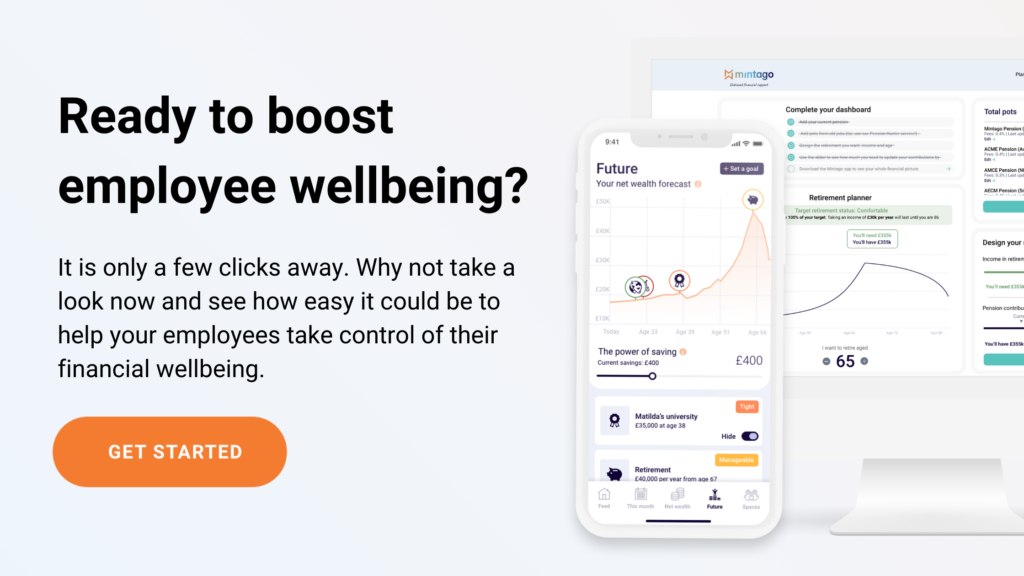For many, 2021 can’t come fast enough. Having been caught largely off-guard this year, we take a look at how some factors of financial wellbeing might evolve in the year to come and how this will affect individuals, employees, and employers.
Changes in consumer habits
Among many facets of daily life, it comes as no surprise that the pandemic has changed how Britons shop, but also what they’re shopping for. Consumer spending has increased 32% online, even if the average British pounds per household being spent has dropped.
People aren’t just shopping for more convenience and to accompany fun Zoom activities (retail value sales of alcohol drinks have grown by 16% this year – the fastest rate in at least a decade), but consumers are changing how they engage with brands. Mckinsey and EY have highlighted this move to value-driven decision making. Consumers now have a heightened awareness of how businesses interact with local communities and societies more broadly. Whether this involves a commitment to sustainability or political activism, the actions that businesses have taken during this pandemic are likely to be remembered long after COVID-19.
Brexit-proofing means more savings
Let’s be honest, there’s a chance that the UK will approach New Years Day without a deal in sight. Coupled with the already burgeoning effects of COVID-19 to the economy, it is likely that a no-deal Brexit will stunt economic growth, increase inflation, and peak unemployment.
Experts are seeing Britons prepare more wiggle room in their budget and build a savings safety net with locked-in rates, in case the interest rate becomes lower for longer. At a time of real uncertainty, many are reorganising their budget and diversifying their investments towards more stable options (metals vs. the volatility of the stock market).
Travel spending on the rise
Strides of rapid testing and more effective policies will see countries lightening border restrictions and welcoming travellers again over the course of the year. In lieu of the demanding year, people are recognising the need for a proper work/life balance and ‘self-care’ time with friends and families.
Reports show consumers already booking ahead for their travel plans. Many are taking advantage of unspent vacation days and planning longer holidays, as well as flushing higher price tags for ‘bucket-list’ trips around the world. The precariousness of a post-Brexit Sterling have also driven big-spenders to convert currency early, locking in rates for a stack of cash to supplement hedging all of their bets right before the trip.

Better financial understanding through technology
The pandemic has caused a huge surge in the FinTech market in new ‘necessities’ and an increased uptake in solutions like contactless payments, trading apps, and AI-powered financial services. 2020 even witnessed the first European neo-bank, Starling, eventually turn a profit.
With such acceleration in financial technology, consumers are likely to demand more secure, simple, and convenient ways to manage their finances. By 2022, mobile transactions are estimated to make up 88% of all financial interactions, with a third of those to be from 50+ year old users. Access to such products also means an increased desire to be more financially literate – as partnerships between technology and other institutions enable customers to improve their long-term wealth generation, financial decision-making, and lower debt.
The employer’s duty of care
In many cases, the workforce had to re-evaluate the role of the employer this year. 2020 reminded business leaders of their duty to offer support, care, and an engaging community that is critical in increasingly remote circumstances. We are already witnessing employers reconsider their benefit packages and employee solutions towards the shifting priorities of their team post-pandemic.
Benefits which have increased in demand include paid time off, wellness benefits, mental health services, and better insurance coverage. Clearly, many of the highly-sought after services are centred around employee health and wellbeing. Some reports even note employers going so far as to set up and make deposits to ESAs (emergency savings account) that let employees build a rainy day fund through payroll deductions.
HR professionals are getting ‘creative’ in reorganising their budget to empower their employees in a flexible and holistic way. Moving away from a ‘one-size-fits-all’ mentality, organisations are placing focus on inclusive education and personalised development to ensure no individual falls through the cracks. Topics of company culture will revolve around supporting physical, emotional, financial, and social wellbeing more than ever.
